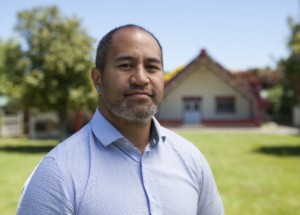
Te Wiki o Te Reo Māori and Mahuru Māori are fantastic kaupapa that EIT utilises to instil te reo Māori as part of the institute’s culture, says Tuhakia Keepa, EIT’s Executive Director, Māori.
Tuhakia says that EIT has taught te reo Māori on its campuses for many years and is committed to the revitalisation of the language and its customs.
“The use of te reo Māori is growing increasingly within the EIT community and we acknowledge that the growth of the language is occurring within our young ones, in particular those EIT students who have come from immersion schools.”
“Teaching te reo Māori is still a core part of what we do through EIT’s Māori Studies Schools of Te Ūranga Waka in Hawke’s Bay and Te Whatukura in Tairāwhiti, but we are also moving to grow what we teach around Te Ao Māori within our other programme areas. Whether it’s primary teaching, early childhood teaching or nursing, we’re expanding the programmes that will engage in teaching te reo Māori tikanga.”
Tuhakia says that the development of national resources has helped promote and encourage learning of te reo Māori, without organisations and institutions having to develop these themselves.
“That’s one of the really positive things that has happened and now there’s this whole challenge around taking this traditional language and not changing it but giving it a contemporary context.”
He says EIT is also regularly involved in supporting local or regional te reo kaupapa or initiatives.
“We take pride in being able to support key events such as Manu Kōrero or regional Secondary Māori speech competitions, and various Kura Reo or revitalisation wānanga at EIT.”
“Nearly all secondary schools in the Hawke’s Bay region participate in the Manu Kōrero, and the Kura Reo will bring people from across the country to access the tutors at these wānanga and to learn te reo Māori at home,” says Tuhakia.
This year EIT will celebrate Mahuru Māori as well as Te Wiki o Te Reo Māori.
“We’ve got specific challenges for staff and students during the month of Mahuru (September) to promote te reo and we have put together a poster that identifies all the challenges” says Tuhakia.
“It is important that we all realise that te reo Māori is a living language that has relevancy and context in the daily lives of all New Zealanders.”
